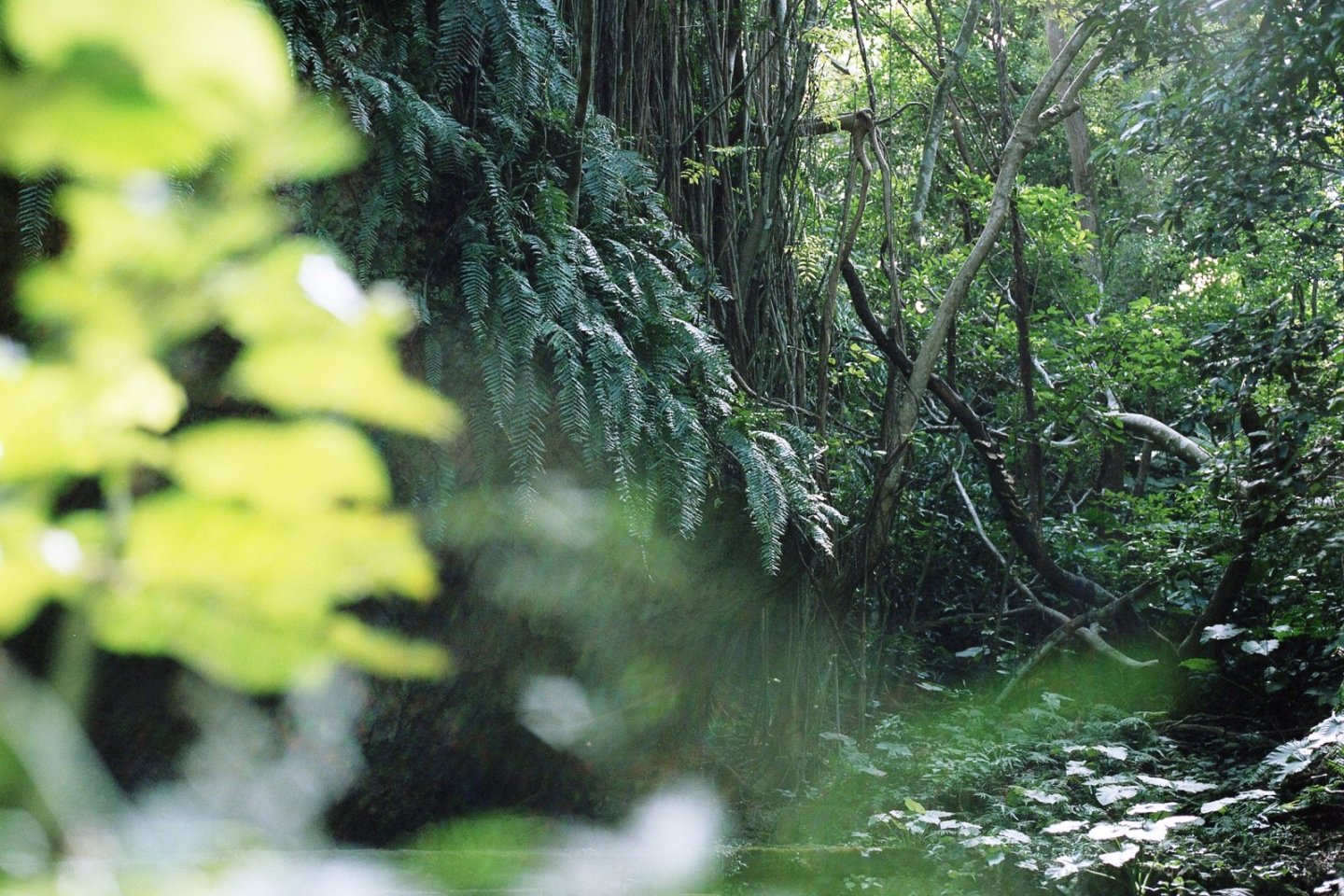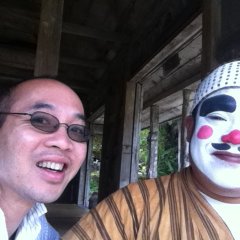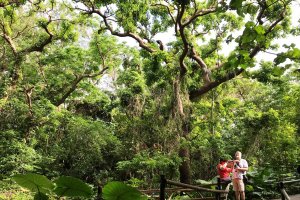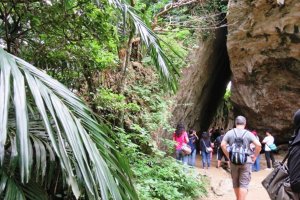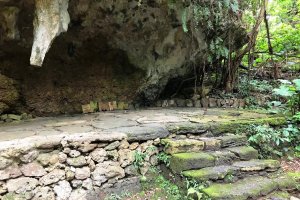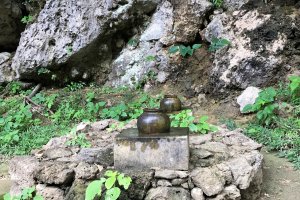Sefa Utaki is the Okinawan way of acknowledging the “ultimate ancestor”, the creator of the Ryukyu Islands. It is a place of respect, reflection and thanksgiving, much like the shrines in other parts of the world where we pay respect for those who have gone before us. It is a place of reverence for millennia, and its associations with royalty have meant that it is a place that is usually shut to the outside world, consecrated for special ceremonies, such as the inauguration of the Kikoeokimi priestess. While it appears to be nondescript compared with the Valley of Ganglia, I highly recommend booking a guided tour to unveil some of its mysteries.
My guide Hiromi, whose ancestors spanned the length and width of this island, takes me to the Yuinchi, whose closest meaning in English is the kitchen shrine or offering altar for the harvests of the sun, land and sea. There are three rocks, each representing heaven, earth and ocean. In many ways everything we eat comes from the sun, earth and sea, so it is symbolic that there are three rocks at the kitchen shrine.
She explains that nutrition is a form of prosperity, part of the reason why the kitchen deity is revered. Yuinchi means “kitchen” or “place of good harvest”, which explains why there is a flat stone platform, one that reminds me of an altar. It is large enough to present the richness of a good harvest, whether it is from the land or sea, from animals, fish or vegetables. The double meaning also suggests that the fruits of the sea, sky and land, are good enough to be eaten as it is, one that fits in with the natural state of this shrine.
She also explains that this is not a primarily a place to make requests, rather, one where you report and give thanks. On reflection, the idea of giving thanks is a key part of longevity. It focuses our mind on all the blessings that we have on life. Reporting what we have done is also an aspect of respect, where we feel closeness with the ultimate ancestor.
Okinawa was a trading kingdom, whose golden age spanned centuries in what we know today as the medieval times, when brave sailors in small wooden sailing boats took to the seas to places like China, Siam, Java and the various ports of the western Pacific. Of course, if they see the sea as a place of blessing, they would have been filled with thankfulness in making these long trips.
In Okinawa, any discussion of medieval history is bound to be tied to its interactions with China, one that is evident in the history of the kitchen deity, seemingly a mixture of indigenous and imported beliefs.
According to the book; The Kitchen God Returns to Heaven: Popular Culture, Social Knowledge and Folk Beliefs in Vietnam, in the Chinese tradition there are five points in the house associated with deities. These are the kitchen, well, gate, entrance, and the gutter in the centre of the double pitch roof, with the kitchen being the most important. It is home of the hearth, and fire is an important element in preparing ingredients that cannot be eaten raw. The Okinawan version, there is also a deity for the toilet. It is seen that the way we dispose of things is just as important as those that we prepare for eating. Perhaps there is a lesson for us to learn as well. The way we treat our surroundings, and the way that we dispose our trash, so that future generations can appreciate the blessings of the material world, is another way we can say thanks for the people to come.
